











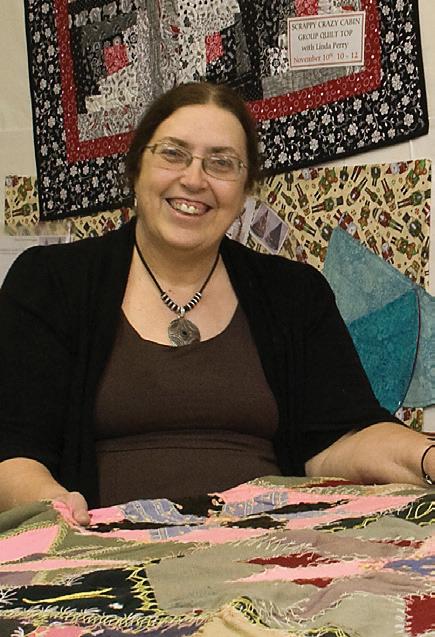
























CONTRIBUTED BY SHERMAN SHERMAN JOHNNIE & HOYT, LLP
As we age, the importance of having a solid estate plan becomes increasingly clear. It’s not just about distributing assets; it’s about ensuring that your wishes are honored, and your loved ones are cared for. However, many seniors make common mistakes that can complicate or undermine their estate plans. It is important to avoid these pitfalls and create a robust plan that meets your needs.
One of the most significant mistakes seniors can make is failing to create an estate plan. Many people believe that having a will is enough, but an effective estate plan goes beyond just a will. It should often include trusts, powers of attorney, and healthcare directives. Without any plan in place, state laws will dictate how your assets are distributed, which may not align with your wishes. Moreover, estate plans are not “one size fits all,” and it is helpful to work with a legal professional to tailor a plan that best aligns with your goals and practical needs.
Life is dynamic, and so are your circumstances. Events such as marriage, divorce, the birth of a child, or the death of a loved one can significantly affect your estate plan. Failing to update your documents can lead to unintended consequences, such as an unintended person inheriting your assets or not providing for a new family member. If you are unhappy with a current estate plan, work on getting it changed soon—after all, every day is a gift and we are never promised tomorrow. Review your estate plan regularly—ideally every few years or after significant life changes—to ensure it reflects your current wishes.
Selecting an executor or trustee is a critical decision that many seniors overlook. This person will be responsible for carrying out your wishes and managing your estate after you pass. Choosing someone who is not up to the task or is untrustworthy can lead to conflicts and delays. Choose someone who is organized, trustworthy, and willing to take on the respon-
sibility. It’s also wise to have a backup person in case your first choice is unable to serve. Moreover, plan on naming contingent roles (“back-ups”) if the first person you name is unable or unwilling to serve in the role you name.
In today’s digital age, many people forget about their online presence when planning their estates. Digital assets—like social media accounts, online banking, and cryptocurrencies—can be valuable and require specific instructions for access and management. Create a list of your digital assets and include instructions for how they should be handled in your estate plan. You may consider making passwords and login information available for those trusted in executing your estate plan—this may make their work much easier when managing and distributing these assets.
While most people focus on what happens after they pass away, planning for incapacity is equally important. Seniors should designate someone to make medical and finan-
cial decisions on their behalf if they become unable to do so. Establish a durable power of attorney and an advance directive to ensure your wishes are honored in the event of incapacity. A durable power of attorney gives those named in it the authority to make financial and legal decisions on your behalf if you become incapacitated, ensuring your affairs are managed according to your wishes. Similarly, an advance directive is a legal document that allows you to specify your healthcare preferences and appoint a trusted person to make medical decisions on your behalf if you become unable to communicate those wishes.
Many seniors overlook the tax implications of their estate plans. Estate taxes can significantly reduce the amount your heirs receive, and certain strategies can help minimize this burden. The Oregon estate tax exemption is currently $1 million—the lowest estate tax exemption in the United States. This means any estate exceeding that amount that is taxable. A home, retirement plans, and other assets can quickly exceed $1 million in
CONTINUED, page 8






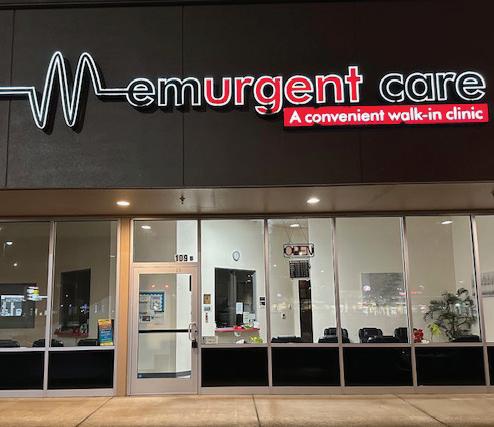








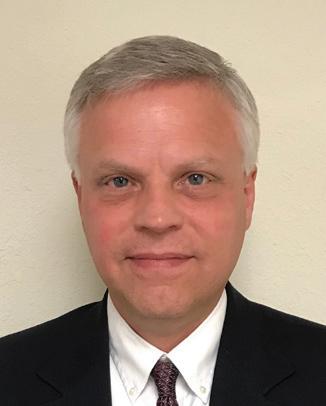
total. Consult with your accountant and estate planning attorney to explore options such as gifting strategies or setting up trusts to mitigate tax liabilities.
With the availability of online templates and resources, many seniors attempt to create their estate plans without professional help. While DIY options can be tempting, they often lead to incomplete or incorrect documents that fail to hold up in court. Always seek the advice of an estate planning attorney who can ensure your documents are valid and reflect your intentions.
When creating an estate plan, it’s essential to consider the needs and circumstances of your family members. Failing to address the needs of dependents, such as children or individuals with disabilities, can create financial hardships and conflicts among heirs. Be clear about your intentions and consider establishing trusts for beneficiaries who may need additional support or protection.
Many seniors fail to discuss their estate plans with their family members, leading to misunderstandings and potential disputes after they pass
away. Open communication about your wishes can prevent conflicts and ensure that your loved ones are prepared. Hold a family meeting to discuss your estate plan and the reasons behind your decisions. While it might be a somewhat difficult conversation in the moment, it can help foster understanding and reduce tension later on.
While it’s important to be thorough, complicating your estate plan with too many layers can create confusion for your heirs. Complex plans may lead to misunderstandings or disputes, especially if family members do not understand the rationale behind them. Strive for clarity and
simplicity. Your estate plan should be easy for your heirs to understand and follow.
Creating an effective estate plan is essential for seniors to ensure their wishes are honored and their loved ones are taken care of. By avoiding these common mistakes, you can create a comprehensive estate plan that reflects your intentions and provides peace of mind for you and your family. Consulting with an experienced estate planning attorney can help you navigate the complexities and create a plan tailored to your unique circumstances. Don’t wait—start your estate planning journey today to secure your legacy and protect your loved ones.
BY BARBARA CRONIN, Director of the Monmouth Senior Community Center
Informal public gathering spaces have been vital to community living throughout time and cultures. Humans have been meeting in Middle Eastern coffee houses, German beer halls, French Cafés, English Pubs, and many other spaces to feel a sense of community and camaraderie. In the late 1980’s, urban sociologist, Ray Oldenburg, wrote about these places in a book called “The Great Good Place.” In this text, he coined
the term “Third Place.” With the first place being home, and the second the workplace, Oldenburg desired to highlight the place people go “where everybody knows your name.”
For something to truly be considered a Third Place, it must meet some criteria. They must be non-exclusive places, on neutral ground, feel like a home away from home, not too fancy/formal, and accommodating. They are places anyone can join in, everyone is welcome, and there are regulars. Most importantly these are places that are fun!
Examples of these places can be churches, cafes/pubs, clubs, gyms, bookstores, parks, public libraries, senior centers, community centers, barbershops/salons, and even virtual spaces.
Why are Third Places and community spaces so important? Loneliness and social isolation is common and very detrimental. We are social creatures that need a sense of belonging and connection to truly thrive at all ages, however older adults tend to experience a lack of connection more often than others. You might already know that
this can take a toll on mental well-being, but research has shown that it is also has quite an impact on your physical health. According to the 2023 Surgeon General’s Advisory, “Our Epidemic of Loneliness and Isolation”, social isolation increases the risk of premature death by around 29%. Put another way, lacking social connection can increase the risk of premature death as much as smoking up to 15 cigarettes a day.
While statistics like these can seem bleak, especially for older adults experiencing loneliness, there are ways to
connect and find support. Senior centers and public libraries have incredible opportunities to stay engaged, continue life-long learning, and more importantly connect to your community. There are currently four public libraries and two senior cen-
ters in Polk County, Oregon. Many of these public spaces have volunteer opportunities that can bring enrichment to both the organization as well as the volunteers.
As we move forward as engaged community members, it’s important to remember
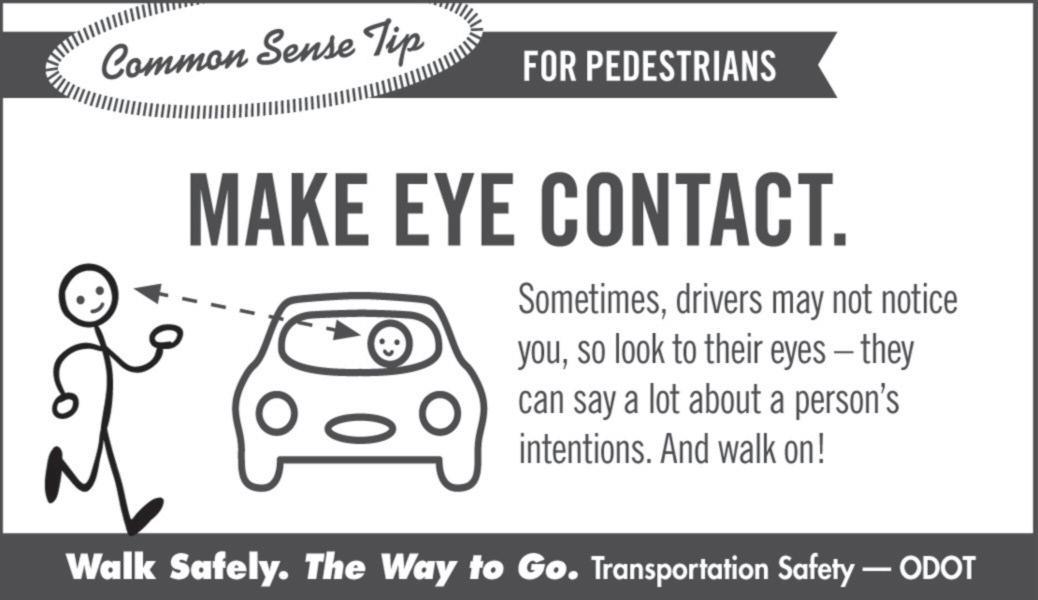
that we have more in common with people than we realize. Let’s strive to check in on our neighbors and friends. Take a moment to seek out common ground and connection. Try out a new class or program at the Monmouth Senior Community Center,
Dallas Area Seniors, or an amazing public library this month. These places are resource hubs for social services and supports. You might be surprised by the connections you make and how your life can be more full than you might have imagined!








Since 2006, the Cherriots Travel Training program has promoted safe, independent travel for all riders, with a focus on seniors and people with disabilities. Travel Training is available to ANYONE: students, commuters, people with disabilities, seniors, individuals new to transit. ANYONE who needs addi-
tional assistance learning how to ride Cherriots Local and Cherriots Regional is welcome to join us!
We support you as you travel on public transportation, working with you to provide the tools you need to ride on your own. We offer Group Training and Individual Training.
Whether you are interested in traveling to a specific destination or learning about the transit system as a whole, our staff will provide you with hands-on experience and the support you need. We work with you until you feel comfortable and confident that you have gained the skills necessary to meet your spe-
cific travel needs and goals. Sometimes the hardest part of traveling on your own is just getting started. Once you’ve discovered how easy it is to get where you want to go on your schedule, you’ll never want to give up that freedom and independence!
Our travel trainer will provide you with the support you need to feel comfortable and confident that you have the skills necessary to meet your specific travel needs and goals.




Had heart surgery?
Staying active can put you on the path to feeling like yourself again.
Strengthen your heart and improve circulation
Reduce the risk of infections and complications
Combat the stress and anxiety that can come with heart trouble
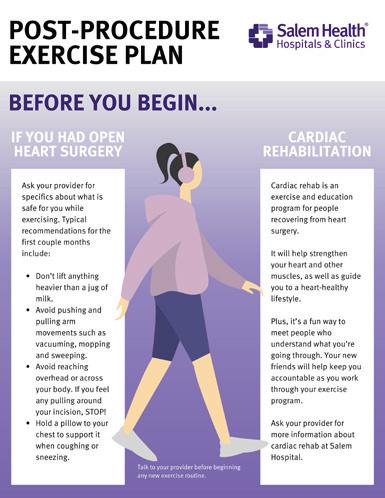
Visit our website to get access to our FREE downloadable guide. It’s your trusted companion on the path to healing, packed with valuable recovery tips.
Don’t wait — learn more and download your FREE exercise plan today.
salemhealth.org/CVP-exercise Scan, download and start your recovery journey today!